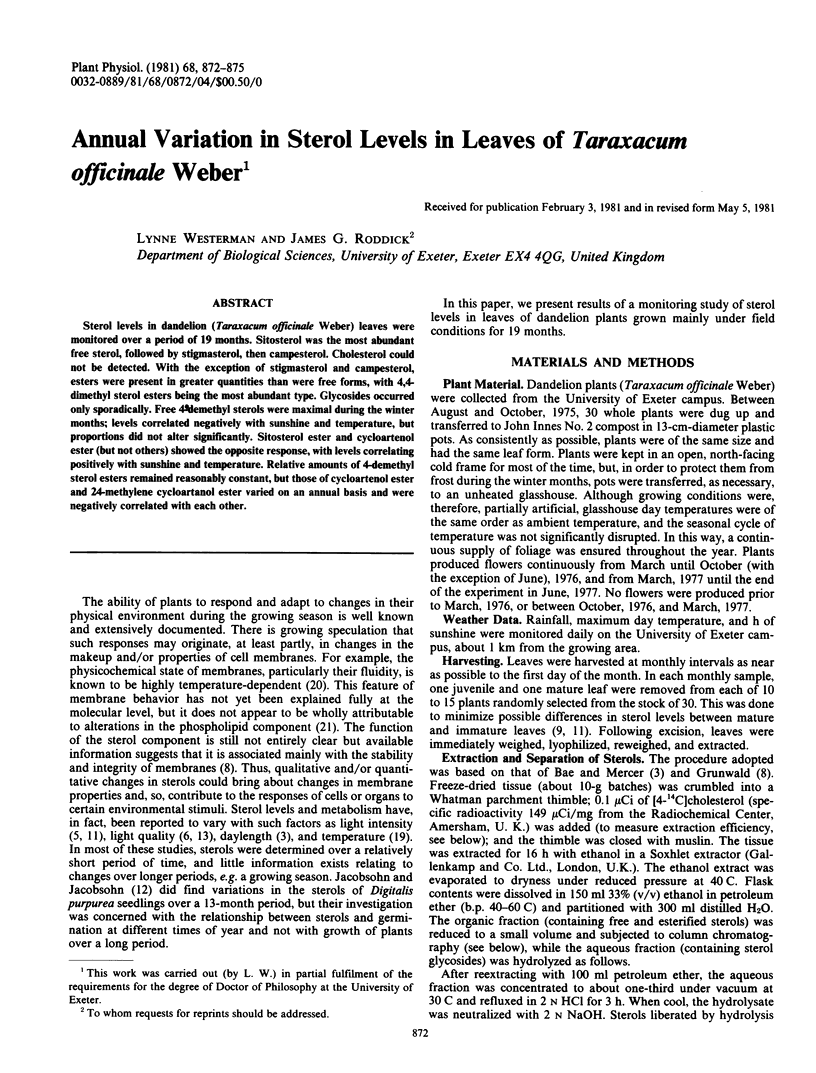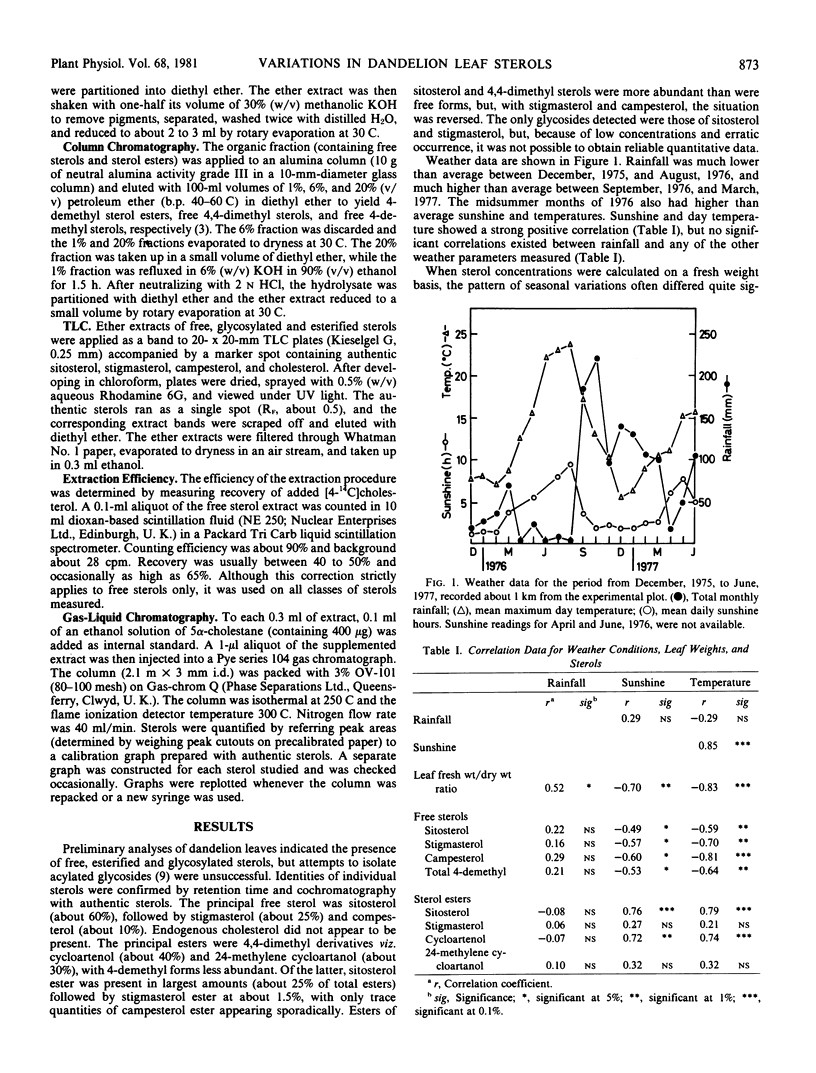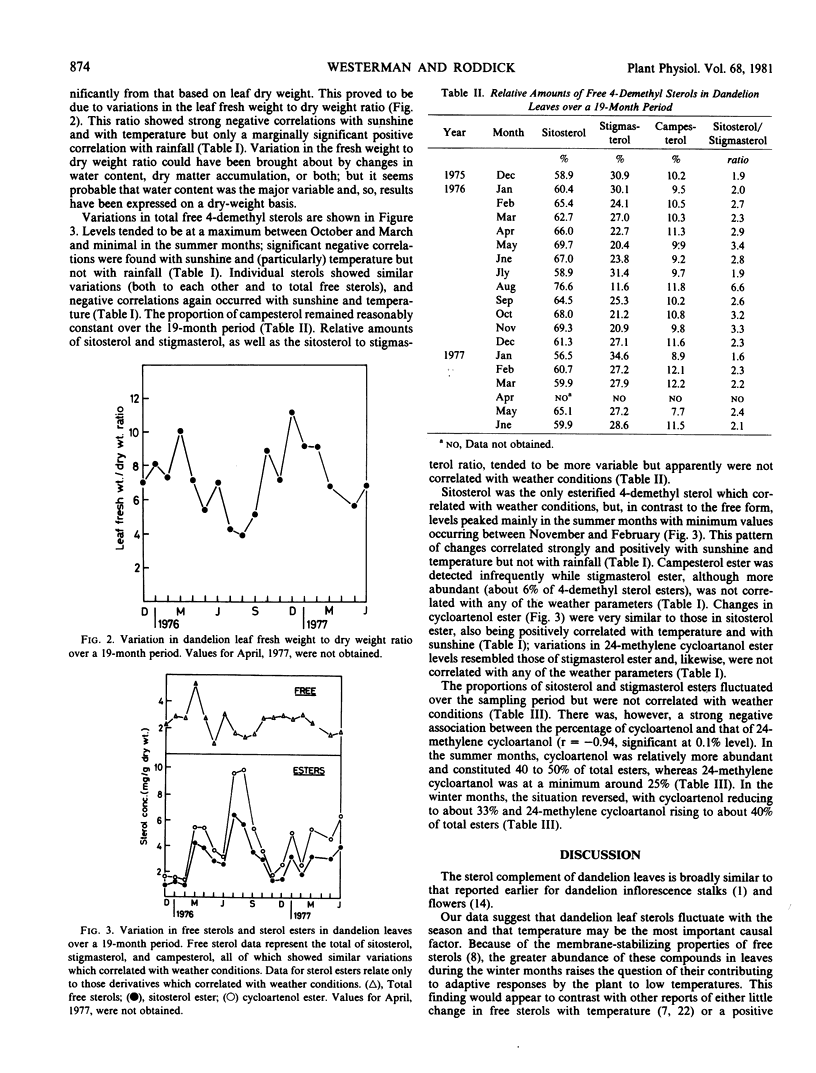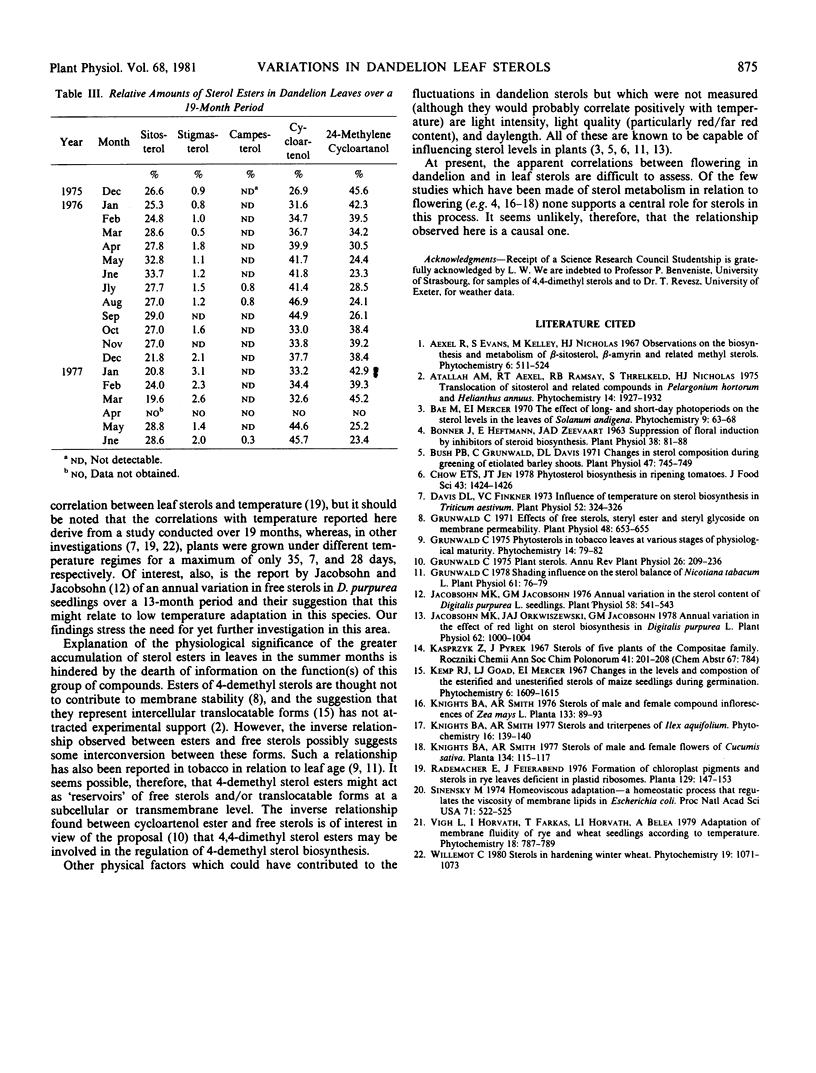Abstract
Sterol levels in dandelion (Taraxacum officinale Weber) leaves were monitored over a period of 19 months. Sitosterol was the most abundant free sterol, followed by stigmasterol, then campesterol. Cholesterol could not be detected. With the exception of stigmasterol and campesterol, esters were present in greater quantities than were free forms, with 4,4-dimethyl sterol esters being the most abundant type. Glycosides occurred only sporadically. Free 4-demethyl sterols were maximal during the winter months; levels correlated negatively with sunshine and temperature, but proportions did not alter significantly. Sitosterol ester and cycloartenol ester (but not others) showed the opposite response, with levels correlating positively with sunshine and temperature. Relative amounts of 4-demethyl sterol esters remained reasonably constant, but those of cycloartenol ester and 24-methylene cycloartanol ester varied on an annual basis and were negatively correlated with each other.
Full text
PDF



Selected References
These references are in PubMed. This may not be the complete list of references from this article.
- Bonner J., Heftmann E., Zeevaart J. A. Suppression of Floral Induction by Inhibitors of Steroid Biosynthesis. Plant Physiol. 1963 Jan;38(1):81–88. doi: 10.1104/pp.38.1.81. [DOI] [PMC free article] [PubMed] [Google Scholar]
- Bush P. B., Grunwald C., Davis D. L. Changes in Sterol Composition during Greening of Etiolated Barley Shoots. Plant Physiol. 1971 Jun;47(6):745–749. doi: 10.1104/pp.47.6.745. [DOI] [PMC free article] [PubMed] [Google Scholar]
- Davis D. L., Finkner V. C. Influence of Temperature on Sterol Biosynthesis in Triticum aestivum. Plant Physiol. 1973 Oct;52(4):324–326. doi: 10.1104/pp.52.4.324. [DOI] [PMC free article] [PubMed] [Google Scholar]
- Grunwald C. Effects of free sterols, steryl ester, and steryl glycoside on membrane permeability. Plant Physiol. 1971 Nov;48(5):653–655. doi: 10.1104/pp.48.5.653. [DOI] [PMC free article] [PubMed] [Google Scholar]
- Grunwald C. Shading Influence on the Sterol Balance of Nicotiana tabacum L. Plant Physiol. 1978 Jan;61(1):76–79. doi: 10.1104/pp.61.1.76. [DOI] [PMC free article] [PubMed] [Google Scholar]
- Jacobsohn M. K. Annual Variation in the Effect of Red Light on Sterol Biosynthesis in Digitalis purpurea L. Plant Physiol. 1978 Dec;62(6):1000–1004. doi: 10.1104/pp.62.6.1000. [DOI] [PMC free article] [PubMed] [Google Scholar]
- Jacobsohn M. K., Jacobsohn G. M. Annual Variation in the Sterol Content of Digitalis purpurea L. Seedlings. Plant Physiol. 1976 Oct;58(4):541–543. doi: 10.1104/pp.58.4.541. [DOI] [PMC free article] [PubMed] [Google Scholar]
- Sinensky M. Homeoviscous adaptation--a homeostatic process that regulates the viscosity of membrane lipids in Escherichia coli. Proc Natl Acad Sci U S A. 1974 Feb;71(2):522–525. doi: 10.1073/pnas.71.2.522. [DOI] [PMC free article] [PubMed] [Google Scholar]


